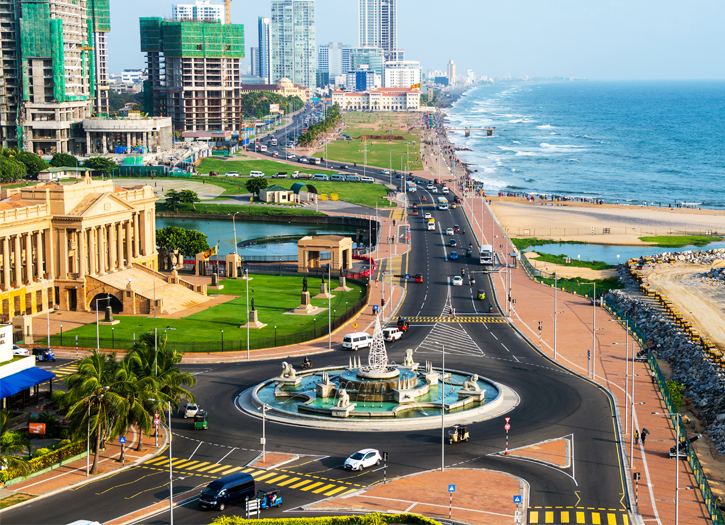The COVID-19 pandemic in Sri Lanka is part of the worldwide pandemic of coronavirus disease 2019 (COVID-19) caused by severe acute respiratory syndrome coronavirus 2 (SARS-CoV-2). The first case of the virus was confirmed in Sri Lanka on 27 January 2020. As of 11 September 2020, a total of 3,155 confirmed cases, 2,969 recoveries, and 12 deaths have been reported in the country. On 3 March 2020, the first reported case involving a Sri Lankan outside Sri Lanka was reported in Italy.
As of 25 March 2020, Sri Lankan authorities have tracked down over 14,000 people who had contacted the identified patients and had ordered self-quarantine for such people.As of 16 April 2020, Sri Lanka has been named as 16th high risk country prone to virus pandemic.Meanwhile, Sri Lanka has been ranked 9th best country in the world for its successful immediate response on tackling the virus. Sri Lankan government announced that it lifted the curfew on 11 May which was in effect for over two months which brings an end to 52 day lockdown style curfew and meaning that public can start going to workplace by maintaining social distancing but the public gatherings, festivals and celebrations are banned.
On 20 April, 33 persons from Colombo confirmed COVID-19 by increasing total up to 303. This was the highest number of new COVID-19 cases in a single day recorded from Sri Lanka until 26 April. On 21 April, 6 persons confirmed COVID-19. On 22 April, a new case from Polonnaruwa district, a Navy sailor attached to the Welisara Navy Camp tested positive for COVID-19 as well as 19 more cases on the same day.On 23 April, 38 persons confirmed COVID-19 by increasing total to 368. Sri Lankan government has requested the general public to practice proper hygiene methods and self quarantine methods to safeguard from the disease.
On 14 March, the Sri Lankan government declared 16 March 2020, as a national public holiday to contain the coronavirus spreading in the country.On 15 March, Sri Lankan President Gotabaya Rajapaksa proposed plans to combat coronavirus to the South Asian Association for Regional Cooperation leaders during a video press conference arranged by Indian Prime Minister Narendra Modi. Sri Lankan President directed the authorities to implement proper quarantine centers to examine the foreigners and ordered relevant authorities to provide necessary essential services to the general public via internet.
The government has proposed plans to arrange home delivery of the essential goods to curb the coronavirus pandemic and also to control the crowd. The decision was reached by the government following the panic buying and overcrowding of public in shopping outlets and supermarkets on 23 March after the removal of curfew temporarily. The government extended the work from home period until 3 April due to extension of indefinite curfews in high-risk zones of the country. However, the government has taken necessary actions to resolve the issues faced by the general public and has allowed farmers, estate workers, bankers, fishermen and cleaners to carry on their duties amid curfews.
President ordered the Central Bank, commercial banks, insurance companies to carry out the services amid the curfew.The government also banned the arrival of travellers from several countries of continental Europe including Spain, Norway, Switzerland, Belgium, Sweden, Germany, France, Austria and Netherlands, extending this to the United Kingdom on 15 March. The travel ban was also imposed to foreign travellers from India, South Korea and Iran. SriLankan Airlines have cancelled several scheduled flights from several countries including India amid coronavirus fears.
The Colombo Stock Exchange closed at a new eight-year low amid the coronavirus fears. The stock market activities were halted for at least 30 minutes on 13 March. On 5 March 2020, the Central Bank of Sri Lanka released monetary policy review and the monetary authority decided to maintain policy interest rates unchanged despite coronavirus outbreak (SDFR fixed at 6.5% and the SLFR fixed at 7.5%). On 16 March 2020, on a surprising move the Central Bank of Sri Lanka revised monetary policy review and cut the policy rates by 25 basis points and also cut the statutory reserve ratio by 1 basis point due to the coronavirus pandemic.







Add Comment